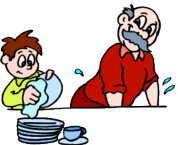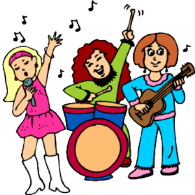Lesson Twelve:
Perfect Modal Verbs
modal verb + have + past participle
Perfect modals take a modal verb (could, should, must, might/may) and pairs it with a perfect tense phrase (have + past participle), which is how it gets its name. Don’t let the vocabulary confuse you! When we say perfect modals, we are not saying that these are modals that are perfect.
Each of these modal constructions have slightly different meanings, and that’s what you will learn in this lesson. Pay attention to the construction and use of each, as these phrases are very common in English- you will hear them often and will need to use them. Overall, perfect modals allow you to talk about possibilities or regret.
As an added bonus, one way to remember this type of construction? Take a listen to one of the most popular American songs, “It Must Have Been Love” and you will never use it incorrectly!
Perfect Modal | Picture | sentence |
could have _____ couldn’t have _____ past ability |  | The boy could have done the dishes himself, but his father decided to help. |
should have ____ shouldn’t have ____ You did or didn’t do something that was a good idea. |  | The girl shouldn’t have spun around so many times. She got dizzy and fell down. spin: turn around many times. spin / spun / spun |
would have ____ wouldn’t have ____ past condition / past situation |  | This house of cards would have fallen over if the person who built it hadn’t been so careful. |
may have _____ may not have _____ past possibility |  | My grandfather may have used this camera when he was a young man, but I’m not sure. |
might have ______ might not have _____ past possibility |  | Her mother might have put mustard on her sandwich. She hopes not. |
must have ____ must not have ___ past probability. This indicates that something probably happened in the past. |  | They must have practiced a lot because they’re very good musicians. |
Let’s not forget…
The Future Perfect Tense
Unlike all the other modals above, will is used for the future:
Subject + will + have + past participle
| Singular | Plural |
|---|---|
| I will have lived | We will have lived |
| You will have lived | You will have lived |
| He will have lived | |
| She will have lived | They will have lived |
| It will have lived |
This is a difficult tense to use. It describes an action that will be completed in the future.
For example: I moved to Minnesota in 1991. The year now is 2008. By 2011, I will have lived in Minnesota for 20 years. |
|---|
Next: Lesson 13